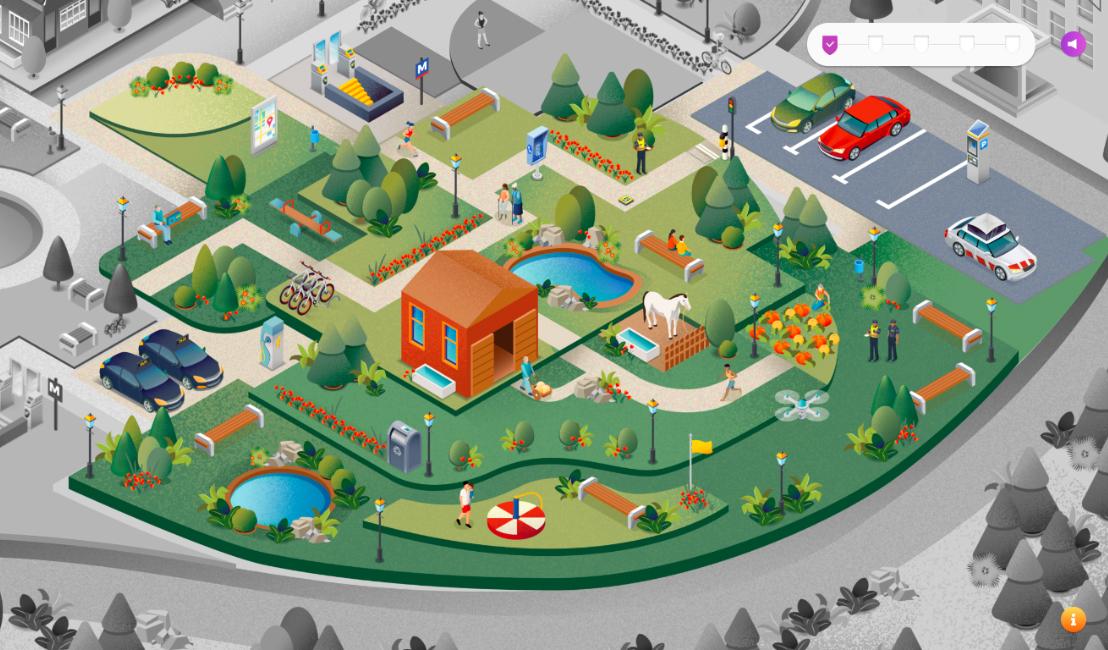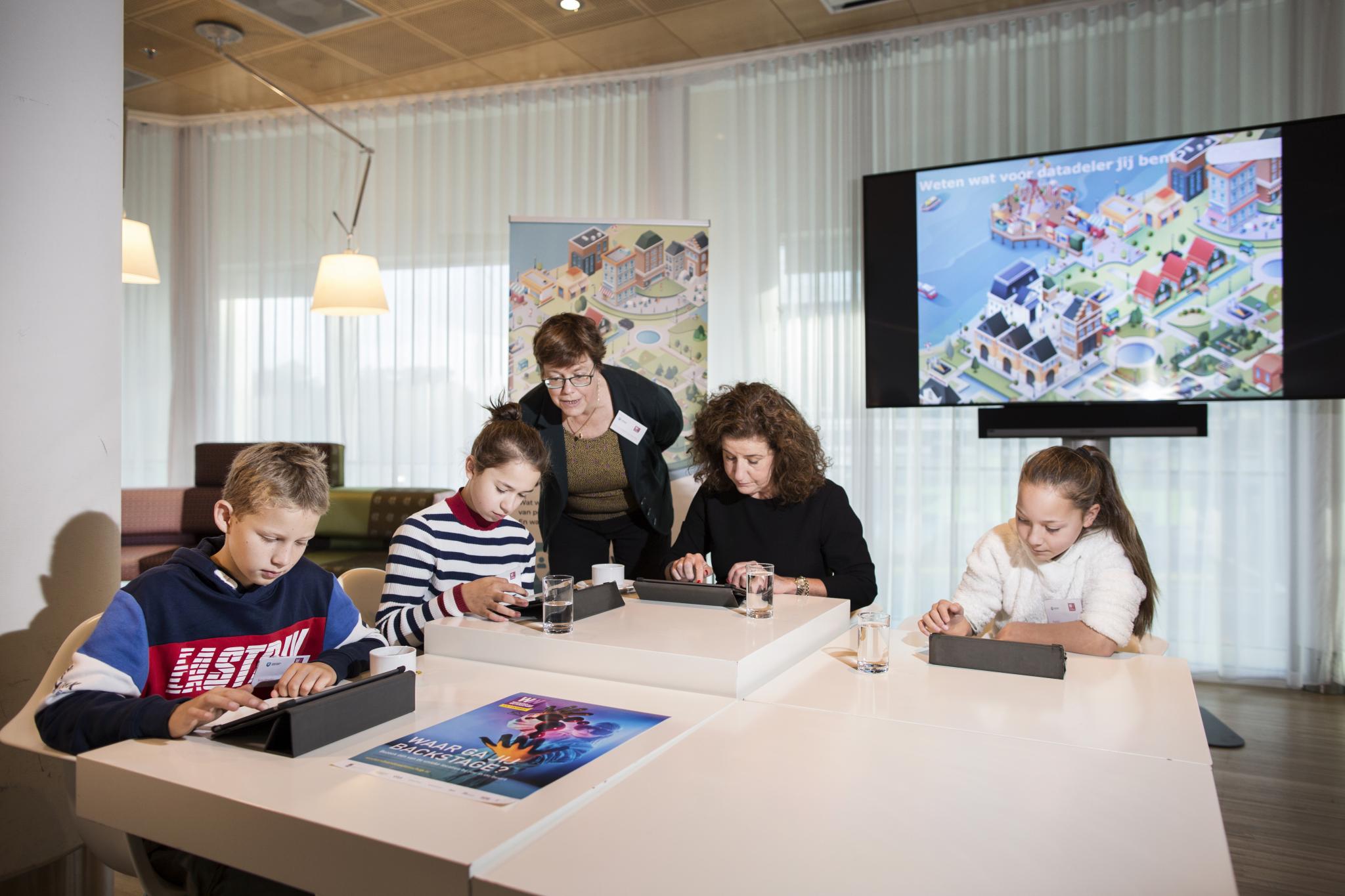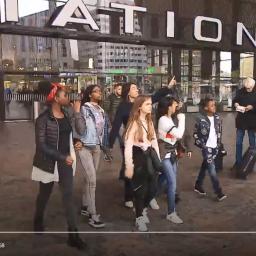Cities are increasingly becoming hubs for data and digital technologies. What digital tracks do you leave behind?
Smart lampposts, vehicle detector loops in the road, public Wi-Fi in the city centre and car parks that read your number plate: our living environment is becoming increasingly driven by modern digital technologies and vast data streams used to monitor, manage and improve the infrastructure and public services in the city. The Leiden-Delft-Erasmus Centre for BOLD Cities aims to make people aware of these data points, in part by means of a new game: ‘Your neighbourhood - Your data'. The game was launched during the Weekend of Science (Weekend van de Wetenschap) on 6 and 7 October and also coincided with the launch of the national public survey on data literacy.
The Centre for BOLD Cities is using the game to investigate Dutch people’s knowledge and behaviour when it comes to digital technologies and data streams in their own neighbourhoods. When do you provide personal data? What are they used for? How do you actually feel about that? These are the types of questions that researchers headed by Prof. Liesbet van Zoonen want to answer by calling on everyone in the Netherlands to participate in the online game to study data literacy.

What digital tracks do you leave behind?
The number of data points, such as cameras, sensors and Wi-Fi trackers, in our living environment is increasing. The majority of us are unaware of these developments, even though they have an impact on our privacy. Security cameras are visible on the street, but network cables are buried underground and the linking of data takes place behind closed doors. Prof. Liesbet van Zoonen, director of research at the Leiden-Delft-Erasmus Centre for BOLD Cities: ‘Cities are increasingly becoming hubs for data and digital technologies. It is essential that citizens and those in government gain knowledge and control over this.'

Interactive game and digital walk
Anyone wishing to participate in the research can play the interactive game ‘Your neighbourhood - Your data’ online and take a digital walk through a fictitious town. During the walk, you answer questions about your knowledge and behaviour concerning your personal data. In which situations are you willing to provide (personal) data in exchange for a service or security? And what do you actually know about the devices and applications that collect these data?
> Play the interactive game Your Neighbourhoud - Your Data: www.jouwbuurtjouwdata.nl
The researchers at the Leiden-Delft-Erasmus Centre for BOLD Cities hope this game will give a clear understanding of what people already know and how they behave, as well as whether knowledge and behaviour are connected. Does knowing more about ‘smart applications’ make you more willing to share personal data, or even less willing? And are people who are reluctant about new technologies prepared to share personal data at all? After playing the game, participants see their own privacy profile based on their results and feedback.
Prof. dr. Liesbet van Zoonen - scientific director of the Leiden-Delft-Erasmus Centre for BOLD Cities and leader of this project: “The city is increasingly a big hub of data and digital techniques. It is crucial to inform policymakers and citizens about this development and give them means of control.”
Data walks
The Leiden-Delft-Erasmus Centre for BOLD Cities also organises data walks. View this broadcast from Omroep Max, in which Prof. Liesbet van Zoonen joins older people in search of data points in the city.
The ‘Your neighbourhood - Your data’ team
Liesbet van Zoonen is professor of Sociology at Erasmus University Rotterdam. She is the director of research at the Leiden-Delft-Erasmus Centre for BOLD Cities and is jointly responsible for the Knowledge Lab for Urban Big Data in Rotterdam. She is also involved in the Association of Universities in the Netherlands’ Digital Society programme, specialising in the theme of Digital Cities and Society.
Els Leclercq is an urban designer and works as a research fellow for TU Delft and the AMS Institute. She conducts research into new organisational structures for urban processes. Els was recently awarded a doctorate for her research into the privatisation of public space.
Emiel Rijshouwer is an industrial design engineer and urban sociologist. He is working as a researcher for Erasmus University Rotterdam and the City of Rotterdam on a project about raising awareness about data in public space. He will soon be awarded a doctorate on the evolution of Wikipedia and the Wikimedia Foundation.
Luuk Schokker works as a programme coordinator for the Leiden-Delft-Erasmus Centre for BOLD Cities. He focuses on setting up and coordinating research projects and public activities.
WEAREREASONABLEPEOPLE is a development agency from Rotterdam, specialising in supporting international organisations in digital and other innovative projects.


